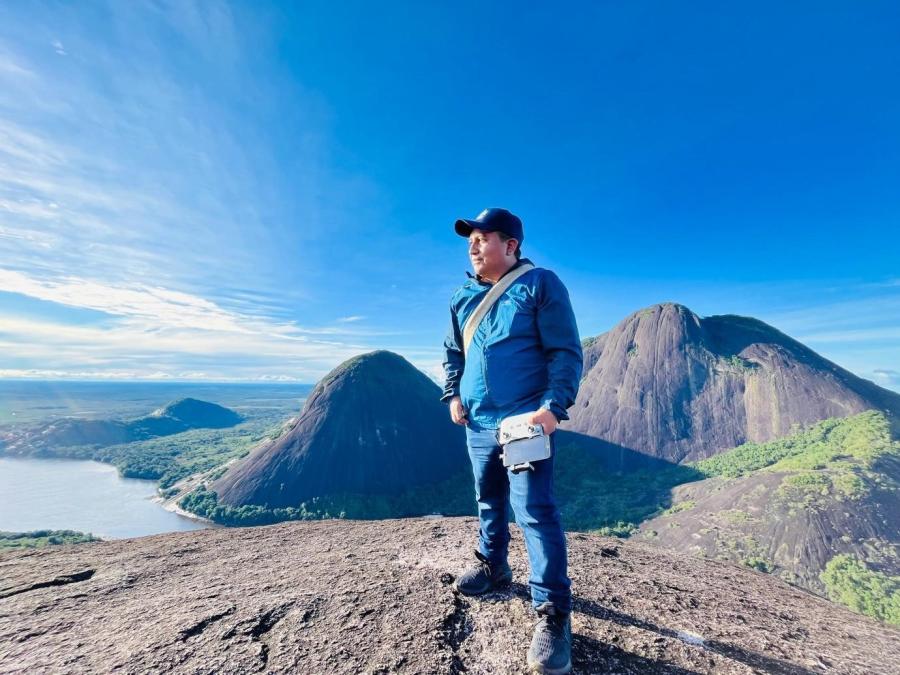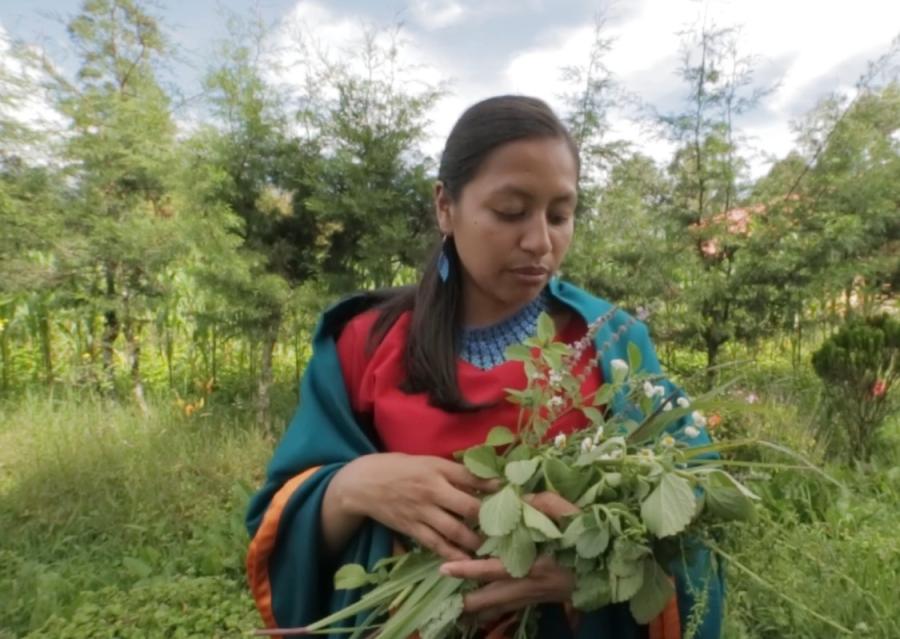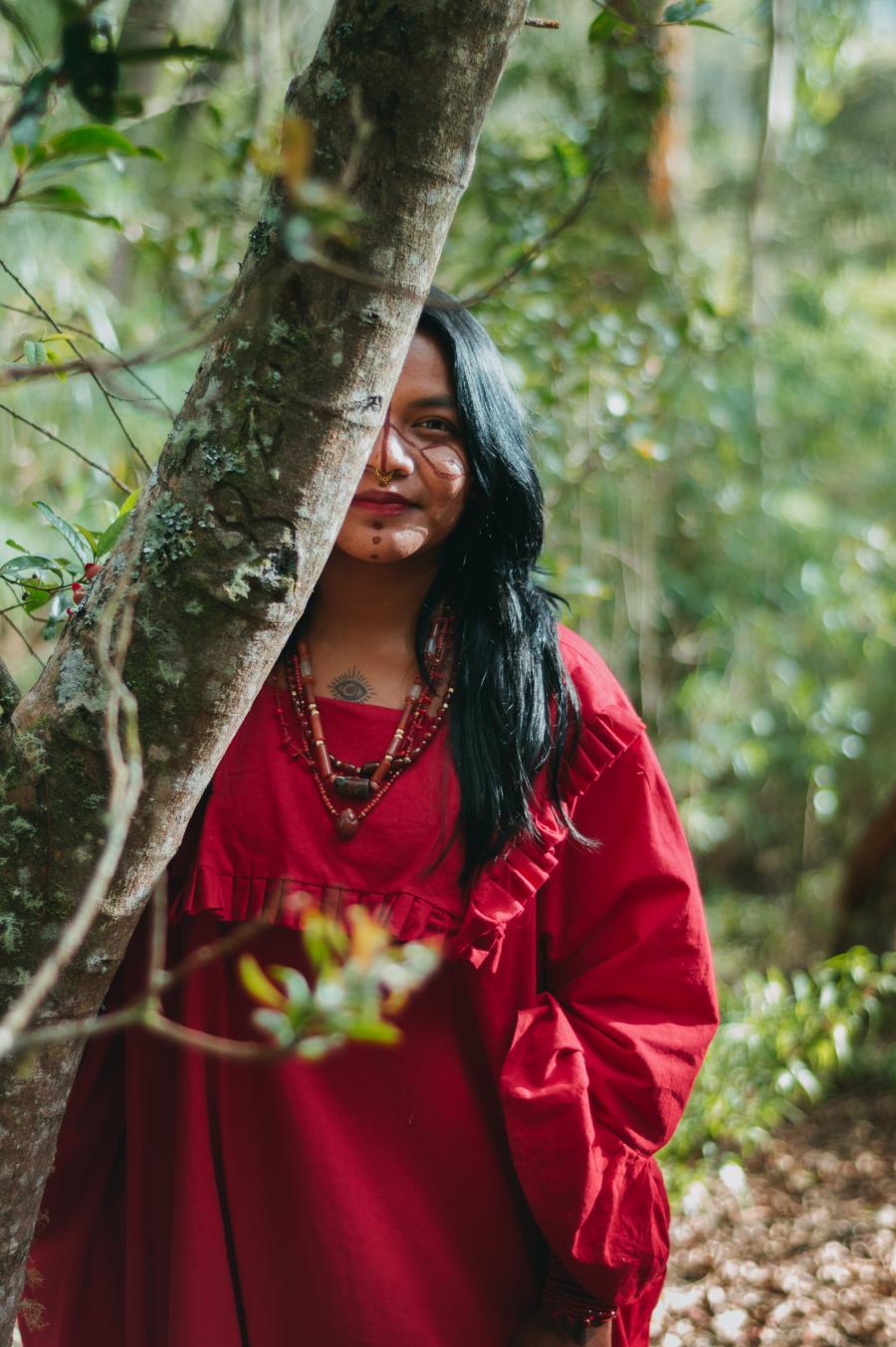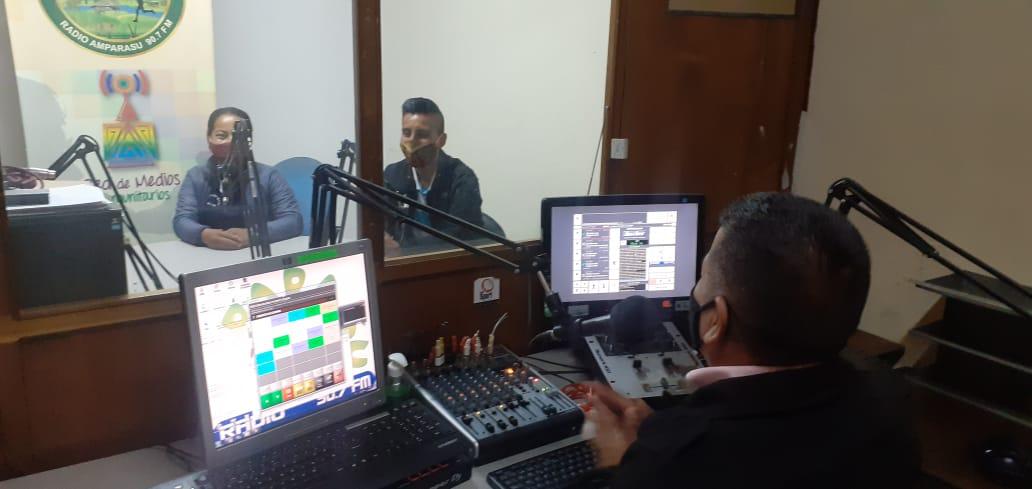
Indigenous Community Media Fund Grant Partner Spotlight
Indigenous community radio station Radio Ampara Su 90.7 FM is the voice of the Awá Peoples in Ecuador. The station began broadcasting in 2014 to disseminate vital information to the Awá people in Awapit and Spanish languages. Since its inception, the station has promoted inclusion, social cohesion, peaceful coexistence, and a culture of peace that works towards the eradication of discrimination in their territory.
In 2020, a grant from Cultural Survival’s Indigenous Community Media Fund was awarded to the Awá Pambilar Center to produce radio programs related to the prevention and mitigation of the COVID-19 pandemic by four radio stations of the Awá Peoples of Ecuador and Colombia: Radio Ampara Su from Ecuador, Radio Camawari, Radio La Voz de los Awá, and Radio Ñampi Telembi from Colombia.
"We organized among community communicators in the midst of the pandemic to produce the scripts, interviews, and recordings for 12 programs. It was very important to have the participation of members of the four radio stations," says Olindo Nastacuaz, Project Coordinator and volunteer at Radio Ampara Su.
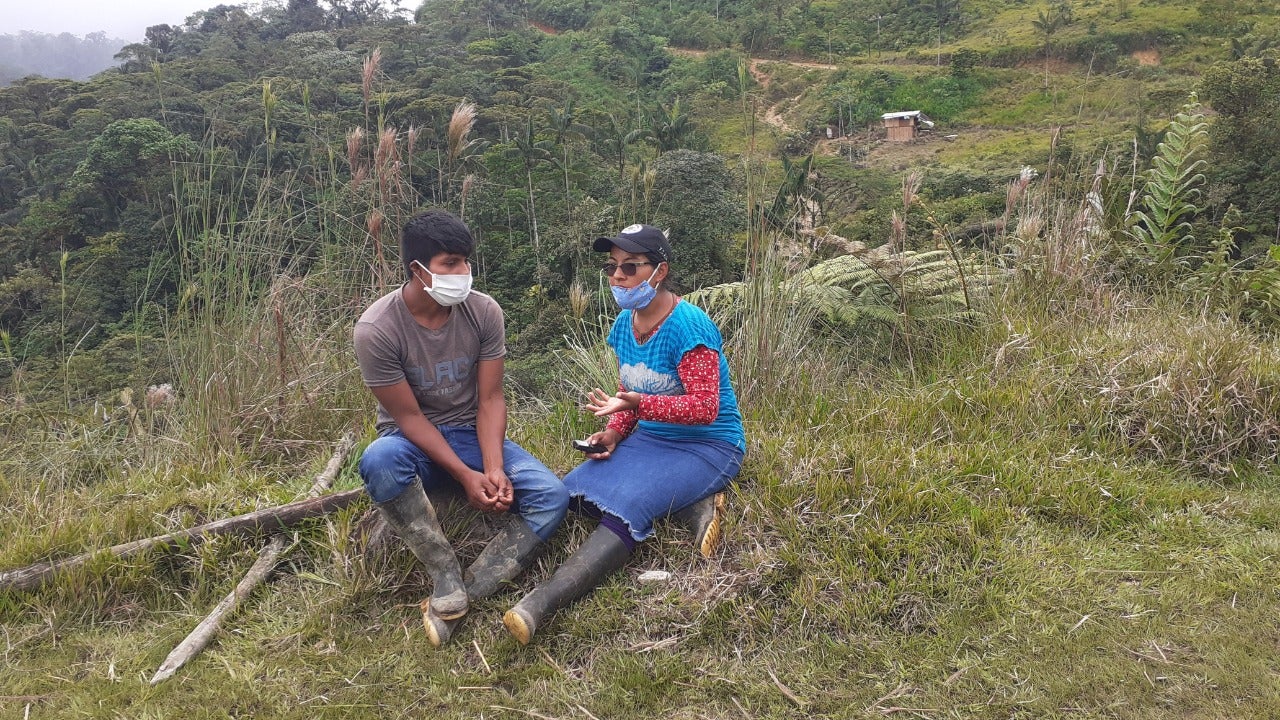
In this production process, the use of virtual technologies and media played a very important role. In some cases, it was necessary to upgrade radio equipment, in addition, some stations needed a better and more stable internet connection. The main obstacles in the project was access to both electricity and stable internet, since these services are unavailable in some communities and reservations.
Despite these challenges, the radio teams delved into the rich knowledge of the Awá Peoples to learn how the WAT SAM MIKA, healers wise in medicinal plants, developed their own medicine to mitigate COVID-19. The Awá communities who are settled in the heart of the tropical forest, were not as affected by the pandemic compared to other nations in Ecuador and Colombia. This reality reflects the benefits of living in remote places, even though they are difficult to access, communities here have access to nutritious traditional foods and live in healthy environments. The reported cases of COVID-19 for the Awá Peoples have been few.
"We have captured in the audio the practice of ancestral medicine, and the return to our own nutrition and care for our territory through our community guards," says Gabriel Dorado, radio producer, Radio La Voz de los Awá, UNIPA Colombia.
“The topics covered in the radio scripts place great emphasis on the reality of the Awá people in the face of the COVID-19 pandemic. The idea is to send a message of reflection to communities about the importance of caring for and protecting our Katsa Su, the great territory. It was a pleasure to interview our great leader, Elder Jesús Nastacuaz from the Awá la Guaña Center, who shared his knowledge of medicinal plants and how to use them to combat COVID-19, ” commented Lady Vasquez, radio producer, Radio la Voz de los Awá, Colombia.
By interacting with the communities, members of the radio stations also learned more about access to education in times of pandemic, which highlighted the historical neglect by the States and lack of public policies which deal with access to and quality of intercultural bilingual education. Similarly, access to virtual education was almost none due to the lack of electricity and connectivity in Awá territory.
The four radio stations of the Awá Peoples of Colombia and Ecuador disseminate essential health, education, and food security information during the pandemic. The stations have organized radio campaigns on preventative COVID-19 measures and safety so that the population knows the importance of adhering to mask wearing, hand washing, antibacterial gel and disinfectant use, and are respecting the territorial patrols by the Indigenous Guards in order to avoid contagion in communities and reservations. Broadcasting in the Awapit language, helps with the strengthening and revitalization of the language as it is currently at risk of going silent, especially among young people and children.
Through the development of scripts, recordings, and editing of radio programs, community communicators from Ecuador and Colombia strengthened communication skills across the Awá Peoples. Through developing these preventive radio campaigns, the four stations have demonstrated their technical capacities and can now promote and offer this type of communication services to public and private companies and institutions.
